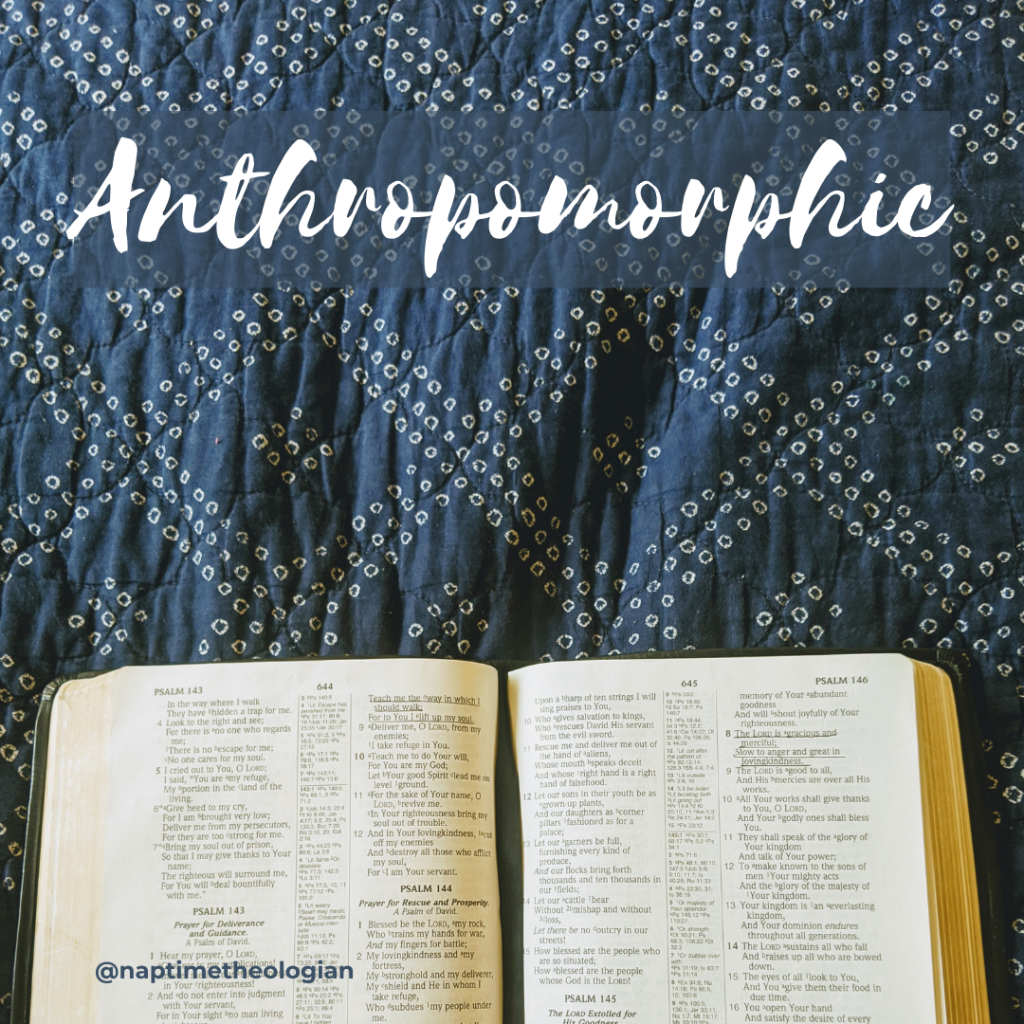Anthropomorphic… well, that is really a mouthful! But once we know the meaning of this big word, we will see that it is full of grace toward us. Here’s what R. C. Sproul says:
“Anthropomorphic comes from the Greek word anthrōpos, which means ‘man,’ ‘mankind,’ or ‘human,’ and morphology is the term for the study of forms and shapes. Therefore, we can easily see that anthropomorphic simply means ‘in human form.’ When we read in Scripture that the heavens are God’s throne and the earth is His footstool (Isa. 66:1), we imagine a massive deity seated in heaven and stretching out His feet on the earth, but we do not really think that is what God is like. Likewise, we read that God owns the cattle on a thousand hills (Ps. 50:10), but we do not interpret that to mean that He is a great cattle rancher who comes down and has a shootout with the devil every now and then. To the contrary, that image communicates to us that God is powerful and self-sufficient just like a human rancher who owns vast herds of cattle.
“The Scriptures tell us that God is not a man—He is spirit (John 4:24) and therefore not physical—yet He is often described with physical attributes. There are mentions of His eyes, His head, His strong right arm, His feet, and His mouth. Scripture speaks of God as having not only physical attributes but also emotional attributes. We read in places of God’s repenting, yet elsewhere in the Bible we are told that God does not change His mind. God is described in human terms in certain instances in the Bible because it is the only way man knows to speak about God.
“We must be careful to understand what the Bible’s anthropomorphic language conveys. On the one hand, the Bible affirms what these forms communicate about God. On the other hand, in a more didactic way, it warns us that God is not a man. However, this does not mean that abstract, technical, theological language is superior to anthropomorphic language, so that we are better off saying, ‘God is omnipotent,’ rather than ‘God owns the cattle on a thousand hills.’ The only way we can understand the word omni or all is by our human ability to understand what all means. Similarly, we do not conceive of power in the same way God conceives of power. He has an infinite understanding of power, whereas we have a finite understanding of it.
“For all these reasons, God does not speak to us in His language; He speaks to us in ours. And because He speaks to us in the only language we can understand, we are able to grasp it. In other words, all biblical language is anthropomorphic, and all language about God is anthropomorphic, because the only language we have at our disposal is anthropomorphic language, and that is because we are human beings.” — R. C. Sproul, What Can We Know About God?

Resources Mentioned:
This post contains affiliate posts, you can read my full disclosure here.
Related Posts:
Aseity | 50-Cent Theology Words
Infinity | 50-Cent Theology Words
Immutability | 50-Cent Theology Words




2 Comments
Awesome blog, thanks a million for showing us
Thanks so much for reading!